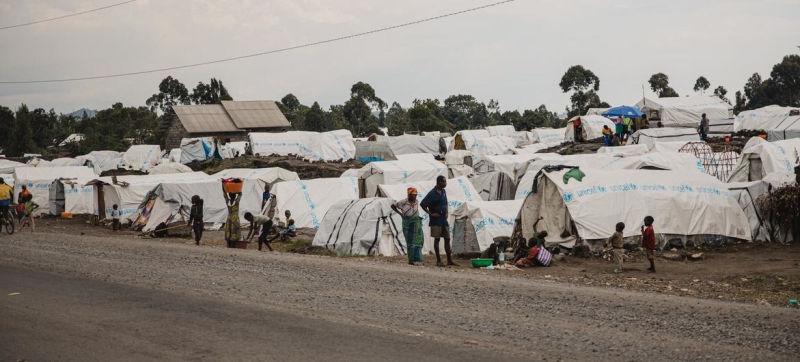
Internally displaced persons camp in DR Congo. UN: Almost every country in the world suffers from the problem of forced internal displacement UN
The number of internally displaced people worldwide is at an all-time high, with more than 70 million today. This is a global crisis that requires solutions from the global humanitarian community, UN Emergency Relief Coordinator Martin Griffiths said on Wednesday.
He stressed that escalating conflicts, natural disasters, water shortages and food insecurity are increasingly forcing people to flee their homes. At the same time, assistance to forced migrants is not provided quickly enough.
UN Special Adviser on Internal Displacement Robert Piper, in turn, said that new data for last year should be presented in May. According to the latest data, displacement due to natural disasters alone increased by 40 percent in 2022 compared to the average for the previous ten years.
“Almost every country in the world suffers from a resettlement problem. Japan is still dealing with internally displaced people from Fukushima, the United States is still dealing with displaced people from Hawaii who were affected by the fires,” Piper said.
He reported that the 4.5 million displaced people in Nigeria account for two percent of the country’s population, the 3.9 million displaced people in Somalia represent more than 20 percent of the population, and almost seven million IDPs in Syria – more than thirty percent of the population.
Read also:
Two years of war in Ukraine: millions of refugees need support
« Despite these numbers, IDPs remain underrepresented in these [UN] corridors. This issue has no clear resolution at the UN, institutional or intergovernmental level,” Piper said, adding that there is no international treaty or forum for this category of people.
The Office of the Special Adviser will continue to operate until the end of next year. For the remainder of his time, Piper said, his team will focus on promoting the rights of internally displaced persons.
“We will raise the profile of internally displaced persons within the UN system and its governing bodies,” he said.
“And I hope that one day we can move the dialogue about creating a regular forum on this issue to a new level in our intergovernmental architecture,” Piper concluded.
